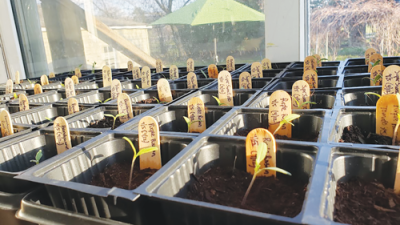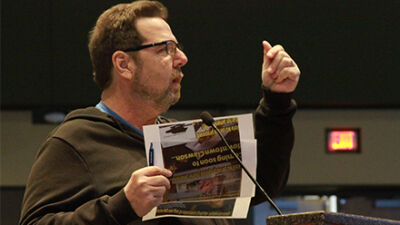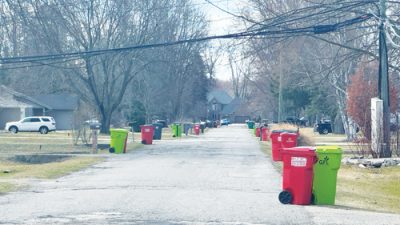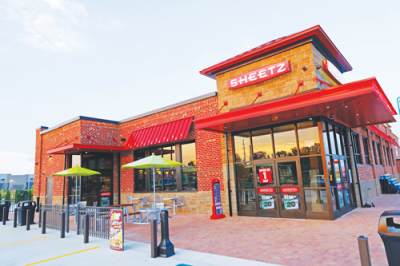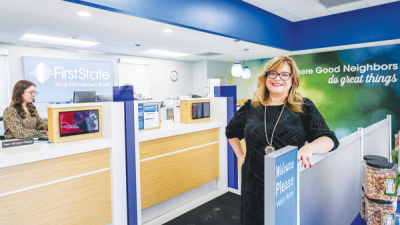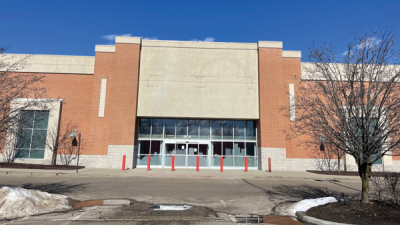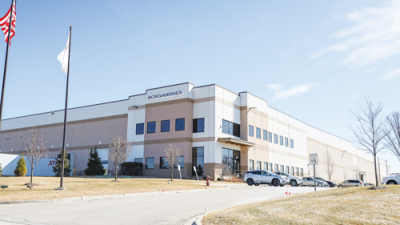FARMINGTON/FARMINGTON HILLS — At a State of the Cities Greater Farmington Area Chamber of Commerce event March 6, Farmington Mayor Joe LaRussa cited what he considers multiple strengths of his city.
The event took place at the Hawk in Farmington Hills, with LaRussa and Farmington Hills Mayor Theresa Rich addressing attendees.
LaRussa cited what he considers multiple strengths of his city.
First and foremost among those strengths, he said, is the steady increase in property values in the city.
According to LaRussa, residential property values have risen an average of 6.6% per year, with projections for this year showing an increase of 8.1%.
“Similar trends exist in commercial and industrial property sectors, with 2024 property values forecasted to be 4.7% and 5.7%, respectively,” LaRussa said. “These positive long-term trends are a result of increased economic development, solid municipal process and planning processes, and strong collaboration. Permanent work in 2023 representing an estimated $8.4 million in property investment is just one of the underlined economic development factors driving this trend.”
LaRussa said that a AA bond rating, a strong economy and a diverse tax base also contribute.
Other points of strength that he mentioned include public safety, the city’s Department of Public Works, the farmers market, and the Farmington Community Library, which he said was visited more than 300,000 times last year.
From his perspective, the city is also strong in recycling and waste diversion: 873 tons of curbside recycled material was one of the factors that helped Farmington more than double the recycling rate in Michigan.
According to LaRussa, the Farmington Road streetscape was the city’s signature project in 2023.
Former Mayor Sara Bowman referred to that project as a complete redo, running between Alta Loma Drive and Grand River Avenue.
According to information that was posted on the city’s website, the project was a multimillion-dollar infrastructure improvement that was made possible with a $1 million federal grant through the Michigan Department of Transportation.
“The streetscape had been on the shelf for years as an unaffordable wish that left our downtown looking unfinished and lacking cohesion,” LaRussa said. “The combined leadership of the City Council, the Downtown Development Authority and the administration, coupled by decisions by the residents to implement a capital improvement millage in 2019, helped to make this transformational project a reality. While construction is always disruptive in the short-term, the long-term positive impacts of investments like the streetscape project are undeniable. … This project spurred additional private investment of almost $10 million, with new businesses coming to the city.”
Other key development projects may also be on the way for Farmington.
“For all the signs of current strength in our city, I also say to all of you that the future of Farmington is bright and full of opportunity,” LaRussa said.
One of the properties that the city has high hopes for is the Governor Warner Mansion, which LaRussa said is one of Farmington’s signature historic properties.
Farmington entered into an agreement to purchase Christian Science First Church, which is located at 33825 Grand River Ave., adjacent to the Governor Warner Mansion, for a price that was previously reported to be $395,000.
Bowman previously said that the property is a “gem” for Farmington, as the expansion provides opportunities for additional programming, space and parking.
LaRussa has also thought about the possibilities that could result from the city making that purchase.
“This strategic acquisition now provides the mansion options for future use, and I’ve called on City Council to pursue that future, taking into account comprehensive feedback we receive from community stakeholders and residents, and considering design options that may improve the use of the mansion,” LaRussa said. “Another key enabler for the future of the mansion is a $1 million appropriation from the state of Michigan.”
With some potentially key development properties on the way, and SEMCOG — the Southeast Michigan Council of Governments — releasing its 2050 forecast for the region, LaRussa shared some more positive news for those in attendance.
“Their forecast shows Farmington growing its household base by 2.5% over the next 25 years,” he said. “I’m happy to report that Farmington will reach this growth at a substantially faster pace, adding two-thirds of the projected housing units over the next five years.”
During her State of the Cities address, Farmington Hills Mayor Theresa Rich touted an infrastructure project that Farmington and Farmington Hills teamed up on, and that project was also on LaRussa’s mind.
The Farmington Area FiberCity project is a fiber optic infrastructure investment that city officials hope will bring a fast and affordable all-fiber network to each home, business and institution in the two cities.
According to a previous press release, SiFi Networks, a privately owned telecom company, is privately funding what was reported to be a $70 million project.
LaRussa has been a part of the broadband committee that Farmington and Farmington Hills formed.
“Serving with the joint municipal broadband task force and collaborating with Farmington Hills has been some of the most gratifying work I’ve ever done,” LaRussa said. “It’s also an economic development and growth game-changer. This project will increase competition for a utility we all need, because no one will use less internet five years from now than they are using today, and none of you is using less internet today than you did five years ago. When elements of competition are present, prices go down and quality goes up.”
According to LaRussa, the process has already started.
“SiFi has already begun construction in Farmington Hills, and we expect them to come to Farmington this year, so keep an eye on the city’s social media and website for more information,” he said. “Get ready to get on board for competition for internet service in Farmington.”
LaRussa also touched on a subject that has caused angst for residents over the years.
Residents in both Farmington and Farmington Hills have reported multiple power outages in recent years.
The complaints were enough for DTE to hold separate community open houses in Farmington and Farmington Hills in 2021, allowing for residents to voice some of their frustrations.
“Farmington has continued its constructive engagement with DTE Energy to address the frequency and duration of power outages in our city,” LaRussa said. “Over the past three years we’ve been meeting regularly with the operations and community outreach teams at DTE. This has resulted in an increase in tree-trimming and equipment upgrades to improve the performance of circuits that serve Farmington. I’m pleased to report that on a weighted, average basis, the typical DTE customer has seen a 77% reduction in outage frequency and a 67% reduction in outage duration since 2021. While we still have some additional circuits that have not experienced this dramatic of an improvement, I remain confident that our ongoing communication and collaboration with DTE will yield additional positive results for Farmington residents and businesses.”
LaRussa also shared some news that is likely to please residents who enjoy going for walks, runs or bike rides.
From his perspective, walkability is already an attractive aspect of living and working in Farmington.
“This benefit is so integral to the city that we formed a pathways committee to focus on it,” LaRussa said. “The committee is participating in a collaborative project with other municipalities to create a pedestrian-friendly connection between I-275 and I-75 that runs along Nine Mile Road. Nine Mile cuts across many neighboring communities, like Farmington Hills, Novi, Southfield and Oak Park. Our committee’s participation has been integral to shape how this path will cross through Farmington.”
LaRussa discussed some of the advantages of the idea.
“We wanted not only a way to continue a trek, bike ride or training run directly east or west through the city, but also an opportunity for those traversing Nine Mile in a more leisurely way to spend time in our downtown,” LaRussa said.
LaRussa’s speech was delivered two days prior to a bicentennial celebration the city coordinated in recognition of Farmington’s founding in 1824.
“For two centuries, the city of Farmington has been a welcoming and thriving community, starting with the grit and resourcefulness of the founding pioneers, a full 13 years before Michigan was even a state,” LaRussa said. “Our city has grown to become a model for other communities that aspire to live at the intersection of history and the future. While there are many hallmarks of what we call ‘the Farmington way,’ the one that stood out time and time again as we planned the bicentennial celebration was the notion that our community welcomes people from all walks of life.”
 Publication select ▼
Publication select ▼





